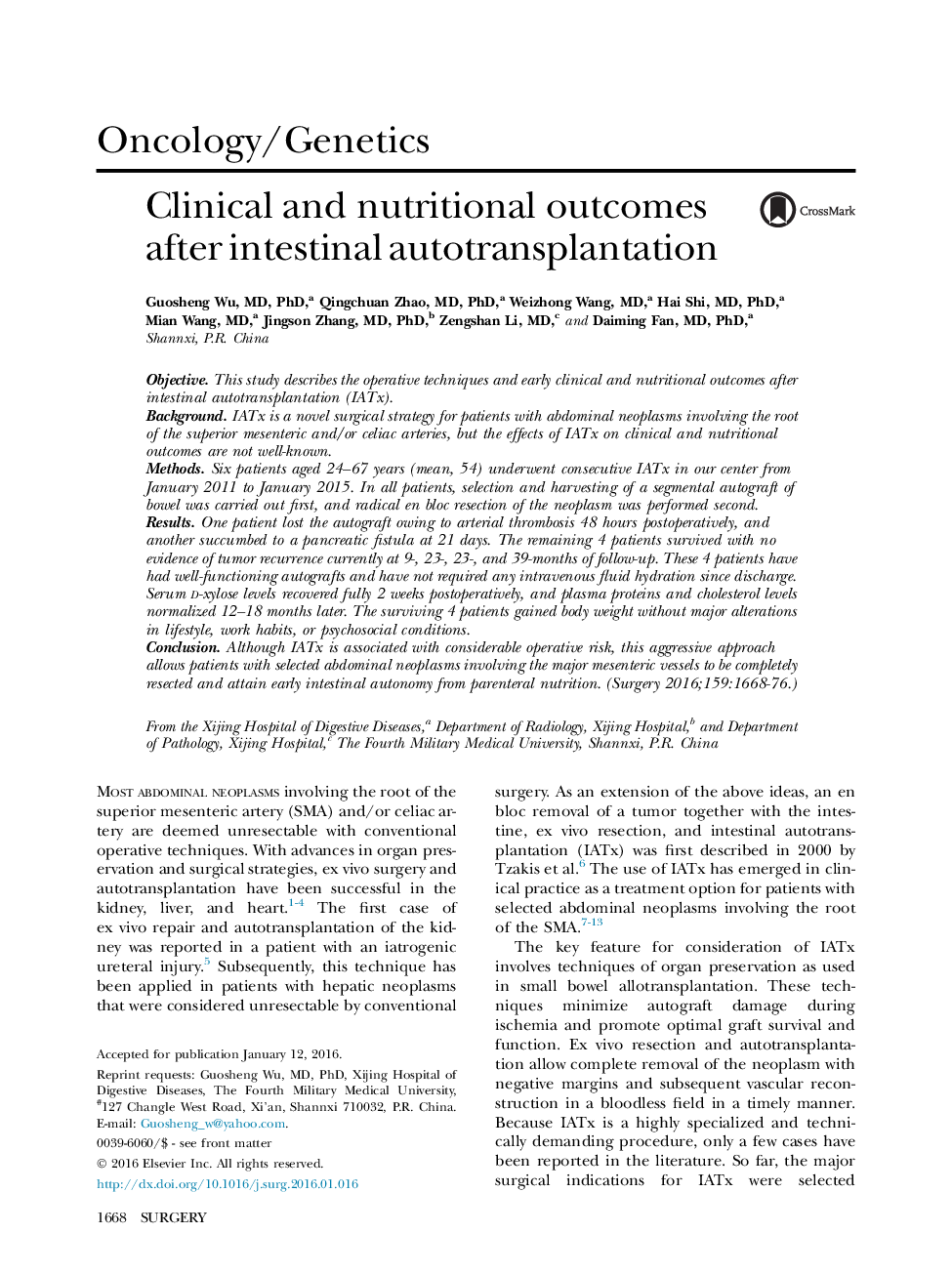| Article ID | Journal | Published Year | Pages | File Type |
|---|---|---|---|---|
| 4306582 | Surgery | 2016 | 9 Pages |
ObjectiveThis study describes the operative techniques and early clinical and nutritional outcomes after intestinal autotransplantation (IATx).BackgroundIATx is a novel surgical strategy for patients with abdominal neoplasms involving the root of the superior mesenteric and/or celiac arteries, but the effects of IATx on clinical and nutritional outcomes are not well-known.MethodsSix patients aged 24–67 years (mean, 54) underwent consecutive IATx in our center from January 2011 to January 2015. In all patients, selection and harvesting of a segmental autograft of bowel was carried out first, and radical en bloc resection of the neoplasm was performed second.ResultsOne patient lost the autograft owing to arterial thrombosis 48 hours postoperatively, and another succumbed to a pancreatic fistula at 21 days. The remaining 4 patients survived with no evidence of tumor recurrence currently at 9-, 23-, 23-, and 39-months of follow-up. These 4 patients have had well-functioning autografts and have not required any intravenous fluid hydration since discharge. Serum d-xylose levels recovered fully 2 weeks postoperatively, and plasma proteins and cholesterol levels normalized 12–18 months later. The surviving 4 patients gained body weight without major alterations in lifestyle, work habits, or psychosocial conditions.ConclusionAlthough IATx is associated with considerable operative risk, this aggressive approach allows patients with selected abdominal neoplasms involving the major mesenteric vessels to be completely resected and attain early intestinal autonomy from parenteral nutrition.
